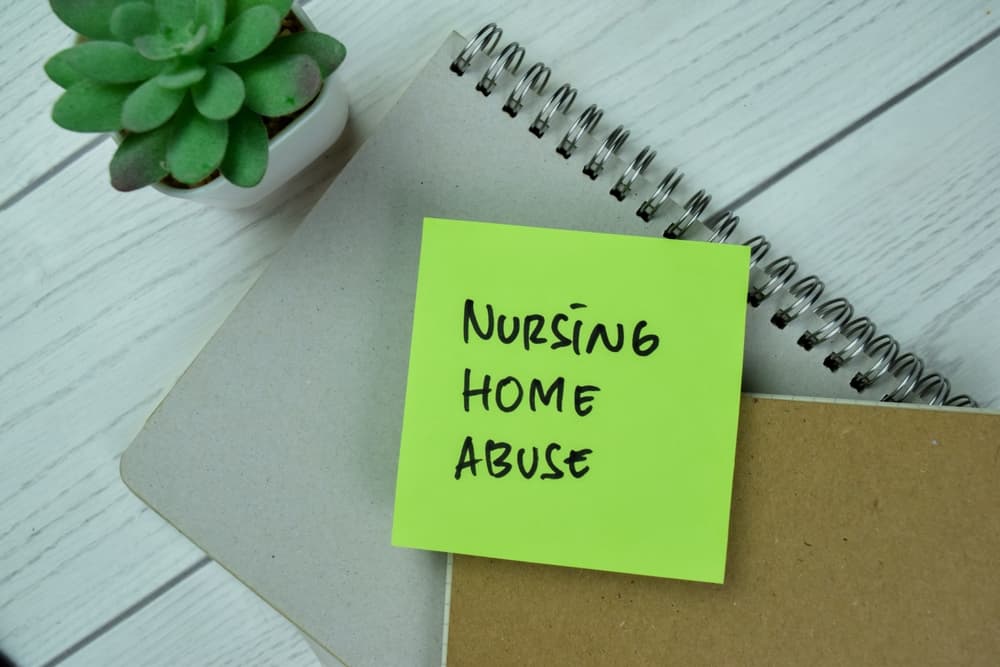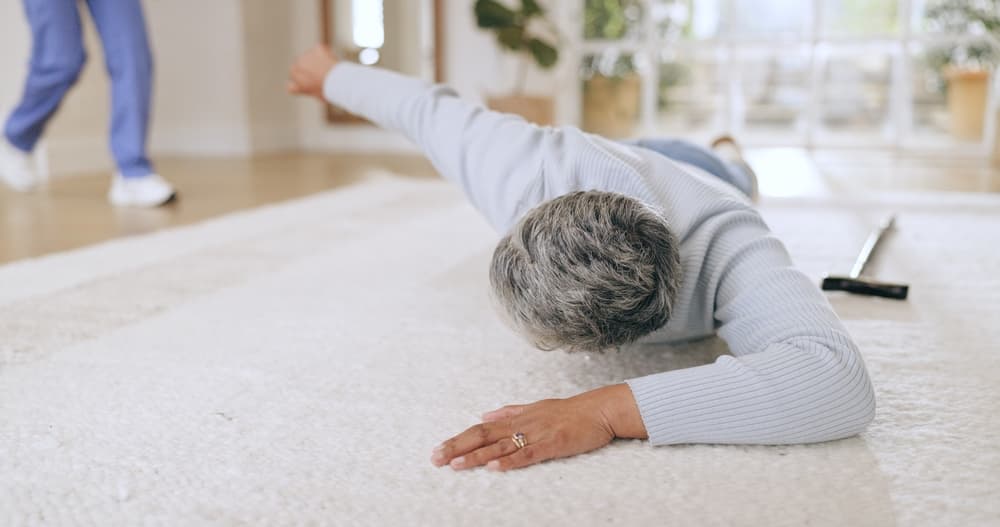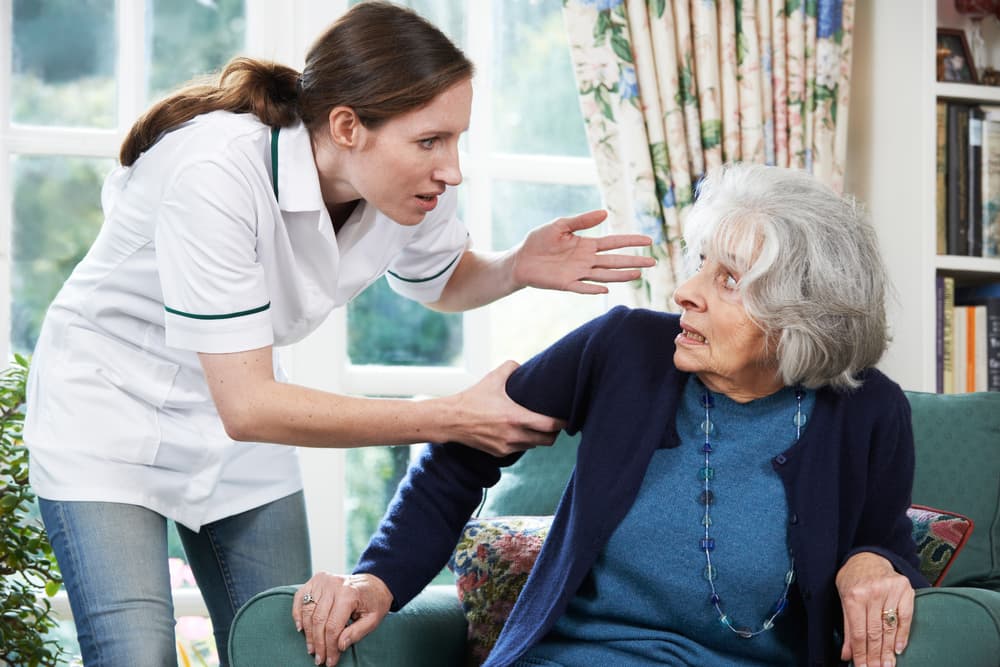Restraints in nursing homes should only be used when absolutely necessary and under strict medical supervision. When used improperly, they lead to severe physical and psychological harm. Many facilities misuse restraints to make caregiving more convenient, ignoring their legal and ethical responsibilities toward their residents.
If your loved one has suffered due to the improper use of restraints, a nursing home abuse lawyer can help hold the responsible parties accountable.
How Nursing Home Staff Misuse Restraints
Both physical and chemical restraints limit a resident’s movement or behavior, but when staff members use them without medical necessity, they violate residents’ rights and dignity. Instead of providing proper care, some facilities rely on restraints as a shortcut to manage patients, creating an atmosphere of neglect rather than support.
The Reality of Physical Restraints
Physical restraints include belts, vests, ties, bed rails, and even strategically placed furniture to prevent residents from moving freely. While some nursing homes claim these methods keep residents safe, they often do more harm than good.
Prolonged restraint leads to muscle atrophy, bedsores, and reduced mobility, making residents even more vulnerable to falls and injuries. The loss of movement doesn’t just affect physical health – it also causes severe emotional distress.
Chemical Restraints – Taking Away a Resident’s Ability to Communicate
Chemical restraints involve sedatives and antipsychotic drugs used to alter a resident’s behavior. Instead of addressing individual care needs, some nursing home staff administer these drugs to make residents easier to manage.
This practice strips residents of their ability to communicate and interact, often leaving them in a near-constant state of sedation. Overuse of chemical restraints increases the risk of confusion, respiratory problems, and a rapid decline in overall health.
The False Justification for Restraint Use
Many nursing homes argue that restraints prevent falls or protect residents from harming themselves. In reality, unnecessary restraint leads to more injuries and a decline in both mental and physical well-being. Restrained residents lose their independence, suffer from anxiety and depression, and endure a life where basic dignity is routinely ignored.
Physical Restraints and Their Devastating Effects
Tying a resident to a bed or chair for long periods causes serious harm, including circulation issues, muscle deterioration, and deep emotional distress. Some nursing homes use physical restraints to manage residents when they’re understaffed, prioritizing convenience over proper care. When that happens, residents suffer unnecessary injuries that could have been prevented.
Potentially Severe Health Consequences
Prolonged restraint leads to severe physical complications. Residents who can’t move freely can develop deep vein thrombosis, infections, and respiratory problems. Being confined to a bed or wheelchair also increases the risk of incontinence, which can lead to infections and skin breakdown.
Bedsores – one of the most painful and dangerous consequences of restraint use – form quickly and worsen if caregivers fail to provide proper attention. These open wounds often become infected, creating life-threatening complications for already vulnerable residents.
The Dangerous Overuse of Chemical Restraints

Chemical restraints are just as dangerous as physical ones. Some nursing homes use sedatives, antipsychotic drugs, and other medications to make residents more docile. Instead of treating a medical condition, staff members administer these drugs to reduce agitation or make residents easier to handle. This practice robs individuals of their ability to think clearly, communicate, and enjoy daily activities.
Overmedication causes serious health issues, including confusion, lethargy, falls, and respiratory distress. Many elderly individuals experience negative reactions to sedatives, leading to further complications.
When a nursing home relies on unnecessary medication to control behavior, it disregards the resident’s dignity and legal rights. Families may notice that their loved one appears excessively drowsy, has difficulty speaking, or shows a sudden cognitive decline.
A skilled nursing home abuse lawyer can gather medical records, interview witnesses, and determine whether a facility is using chemical restraints without justification. If your loved one has suffered due to overmedication, legal action can help put an end to the abuse and provide the compensation they deserve.
Emotional and Psychological Harm from Restraint Misuse
The impact of improper restraint use extends beyond physical harm. Residents who endure unnecessary restraints often suffer from depression, anxiety, and emotional distress. Being physically bound or chemically sedated strips them of control over their own bodies and lives. Many become withdrawn, fearful, and distrustful of caregivers.
The Effects of Isolation
Isolation frequently accompanies restraint misuse. Residents restrained for extended periods lose access to social interactions, leading to loneliness and mental health decline. When a facility prioritizes convenience over human dignity, residents feel abandoned and forgotten. A South Carolina nursing home abuse attorney can hold these nursing homes accountable for the psychological damage inflicted on vulnerable individuals.
Families should pay attention to behavioral changes in their loved ones. If they appear scared, reluctant to speak, or emotionally distant, it may indicate they have been restrained against their will. Seeking legal assistance is vital in stopping further harm and ensuring proper care.
Restraints as a Form of Punishment
Some nursing homes use restraints as punishment, violating ethical and legal standards. Staff members frustrated with a resident’s behavior may tie them to a bed, confine them to a chair, or overmedicate them as a form of control. This approach turns a caregiving facility into a prison-like environment, stripping residents of their dignity and autonomy.
A Culture of Fear
Punitive restraint use creates a culture of fear within the nursing home. Residents subjected to such abuse feel powerless, unable to defend themselves or seek help. Some develop post-traumatic stress, becoming fearful of speaking up about mistreatment. A South Carolina nursing home abuse attorney can investigate these violations and help families take legal action against abusive facilities.
If a nursing home punishes residents with restraints, it signals a deep failure in caregiving standards. Families must remain vigilant, asking questions about their loved one’s treatment and reporting any suspected abuse. Legal action not only helps individual victims but also protects others from similar harm.
Staff Shortages and the Misuse of Restraints
Understaffing in nursing homes contributes to the improper use of restraints. When facilities don't have enough caregivers to provide proper supervision, they resort to restraints as a substitute for attentive care. Instead of hiring additional staff, they take shortcuts that compromise resident safety.
Overworked caregivers may believe restraints make their job easier, but the long-term effects are disastrous. Residents suffer physical decline, emotional distress, and loss of independence. Proper staffing levels prevent these issues by ensuring that each resident receives individualized attention without the need for restraint.
A South Carolina nursing home abuse lawyer can examine whether understaffing played a role in a resident’s mistreatment and seek justice on their behalf.
Recognizing the Warning Signs of Restraint Abuse
Families play a critical role in identifying restraint abuse in nursing homes. When a resident shows signs of unexplained bruises, bedsores, or sudden muscle weakness, it may indicate the improper use of physical restraints.
Residents who appear overly drowsy or disoriented could be victims of chemical restraints, where sedatives or antipsychotic drugs are used to control behavior rather than for medical treatment. Fearful behavior around staff members is another red flag, as residents who have been restrained without cause can develop anxiety and be reluctant to speak up about their experiences.
The Importance of Taking Immediate Action
If you suspect a loved one has been restrained without medical justification, taking immediate action is necessary. Ignoring the signs of restraint abuse allows the mistreatment to continue and puts the resident’s health at risk.
Restraint abuse not only harms the individual victim but also reflects systemic neglect that may affect other residents. A South Carolina nursing home abuse attorney can expose the full extent of the mistreatment and force the nursing home to change its practices.
Overcoming the Fear of Retaliation
Many families hesitate to take legal action against a nursing home, fearing that their loved one might face retaliation from staff. While this concern is understandable, allowing abuse to persist puts all residents at risk.
Negligent facilities that misuse restraints often engage in other forms of mistreatment, including inadequate medical care and neglect. Holding these nursing homes accountable forces them to improve their care standards and prevents further harm. Families who take a stand not only protect their loved ones but also contribute to broader efforts to stop elder abuse in long-term care facilities.
Legal Protections Against Improper Restraint Use
Nursing home residents have legal protections against improper restraint use, ensuring their rights and dignity remain intact. The Nursing Home Reform Act strictly prohibits using physical or chemical restraints for convenience or as a form of discipline. This federal law mandates that restraints can only be used when medically necessary and prescribed by a doctor. Facilities that violate these protections face severe legal consequences, including lawsuits, fines, and potential loss of licensing.
South Carolina law reinforces these federal protections, holding nursing homes accountable for any abuse or neglect related to improper restraint use. Residents have the right to move freely and receive care without unnecessary restrictions. When facilities violate these rights, legal action can expose their wrongdoing and force them to change their practices.
How Legal Action Holds Nursing Homes Accountable
A South Carolina nursing home abuse lawyer can help families understand their rights and take legal action against facilities that misuse restraints. Legal intervention uncovers the extent of the abuse, determines whether the nursing home violated federal or state laws, and builds a strong case against the facility.
Whether the abuse involves physical restraints like bed rails and ties or chemical restraints such as sedatives and antipsychotic drugs, an experienced attorney can demand accountability.
Many nursing homes try to justify improper restraint use by claiming it prevents falls or injuries. However, federal regulations clearly state that restraints should only be used when absolutely necessary for medical reasons. Facilities that ignore these guidelines put residents at risk for the serious health complications mentioned previously, including bedsores, infections, and severe emotional distress. A legal advocate ensures that nursing homes can’t get away with these harmful practices.
A Closer Look at How a South Carolina Nursing Home Abuse Attorney Investigates the Improper Use of Restraints

A South Carolina nursing home abuse attorney investigates the improper use of restraints by reviewing medical records, surveillance footage, and staff reports to determine if physical or chemical restraints were unlawfully used. They interview residents, families, and employees to uncover signs of neglect or abuse.
Attorneys consult medical experts to assess whether restraints were medically necessary or violated federal and state laws. They also examine facility policies and past violations to identify patterns of misconduct. If evidence of abuse exists, the attorney pursues legal action to hold the nursing home accountable and secure justice for the victim and their family.
Seeking Justice for Victims of Restraint Abuse
Families who suspect a loved one has suffered from improper restraint use should not hesitate to seek legal help. Holding nursing homes accountable not only brings justice to the victim but also forces these facilities to improve their standards of care, preventing further mistreatment of vulnerable residents.
Taking Action to Protect Loved Ones
No one should endure unnecessary restraint in a place meant for care and support. Families must remain vigilant, asking questions, documenting concerns, and speaking with a legal advocate when abuse is suspected. Nursing homes that misuse restraints violate the trust placed in them.
Legal action allows families to seek justice for their loved ones. A personal injury attorney can help uncover the truth, pursue compensation, and ensure that no other residents suffer the same fate. If your loved one has been harmed due to improper restraint use, taking legal steps is the best way to protect their well-being and hold negligent facilities accountable.
The improper use of restraints in nursing homes causes lasting harm, but families have the power to fight back. Seeking legal assistance ensures that vulnerable individuals receive the care and dignity they deserve, free from abuse and mistreatment. Contact a lawyer immediately so they can protect your loved one’s rights and dignity.







